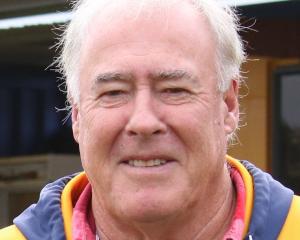Palenski's new book, Rugby, a New Zealand History, published by Auckland University Press, has just been released.
It is believed to be the first narrative history about the game to be published in New Zealand.
Palenski said that gave him more scope to write about different areas of the game.
''One of the most enjoyable parts of writing the book is instead of repeating all the old stories about William Webb Ellis and how the All Blacks came about, I could do a lot more about everything really,'' he said.
''I could do a lot of research and go right back to when the game first arrived here. Find evidence to dispel all of those myths that have became stories around the game.''
Out of his research he concluded the first game of rugby in New Zealand was not played in Nelson in 1870, as commonly believed.
There are reports of games earlier in Wanganui, Wellington and Christchurch although whether those games were played under proper rugby rules is unclear.
Other information he has unearthed is that the relationship between South Africa and New Zealand was sour right from the start, and that the notion that Otago coach Vic Cavanagh jun was rejected as coach of the 1949 All Blacks may not be entirely accurate.
Rugby had always been the national game, Palenski said and there were three main reasons for its popularity.
The success of the All Blacks right from the start helped the game spread quickly and also important was the fact the sport organised more quickly than most other sports in New Zealand in the early days.
Maori also paid a big part in the success of the game, spreading it right around the country.
The native tour overseas in 1888 led to the formation of the New Zealand Rugby Football Union and the 1905-06 Originals tour.
Palenski said you only had to look at the 2011 World Cup to show the country was still captivated by the sport.
''I can recall conversations with people who had no interest in rugby but they still went to fan zones, still went to games. No other sport comes close really.''
The Otago Daily Times is offering the book as the prize in its pick the All Blacks World Cup competition.
Entries to name the 31-man squad to defend the All Blacks' title can be sent to sports editor Hayden Meikle at hayden.meikle@odt.co.nz or you can write to: World Cup competition, ODT sports department, PO Box 517, Dunedin. The squad is named on Sunday.
An excerpt of Palenski's book concerning the decision not to appoint Cavanagh as coach of the ill-fated 1949 All Black team to South Africa, will feature in the Weekend Mix section on Saturday.











